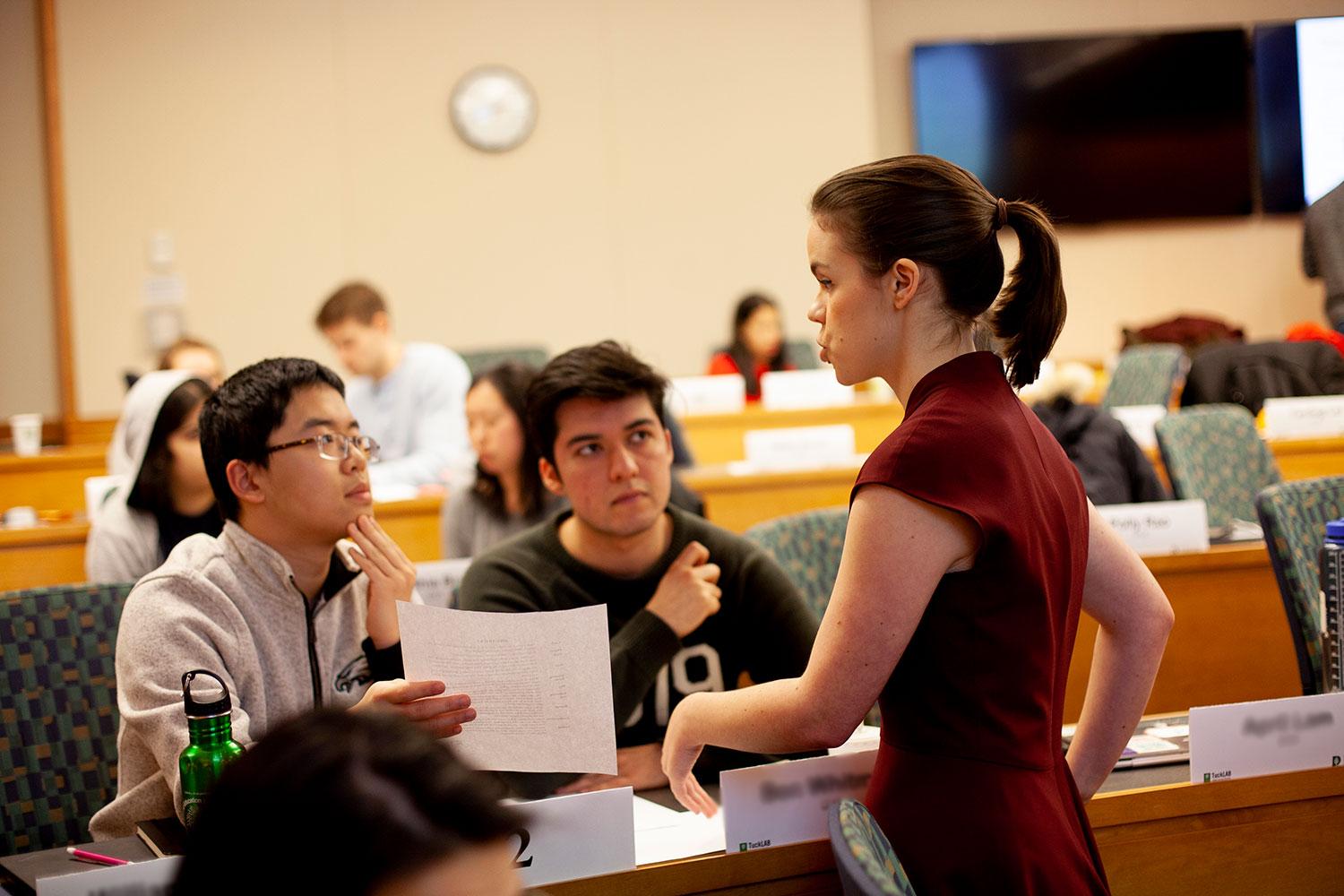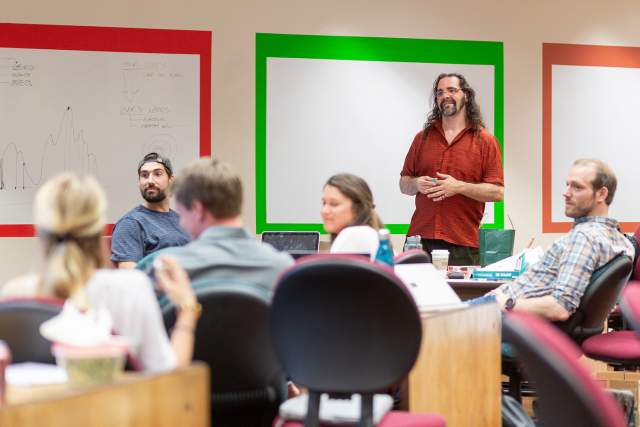Winter 2019 marks the launch of an exciting new program for Dartmouth undergraduates: TuckLAB.
This partnership between Tuck and Dartmouth’s Magnuson Center for Entrepreneurship is designed to provide students with general business analytic and communication skills, as well as an understanding of the core concepts and practices of entrepreneurship.
The brainchild of Rick Magnuson D’79, Jeffrey Crowe D’78, Dean Matthew J. Slaughter, Deputy Dean Punam Anand Keller, and Jamie Coughlin, director of the Magnuson Center, TuckLAB is meant to make it easier for program participants to build a viable career in any field. “We want students to be able to pursue their dreams, no matter what their passions are. Whether they care about dance or health care or something else entirely, we want them to feel prepared for what comes after graduation,” says Keller.
A goal of TuckLAB is also to deepen the connection between Dartmouth undergraduates and Tuck. “TuckLAB is an example of Dartmouth at its best—a co-curricular program designed to help students achieve their career ambitions. We want every Dartmouth student to have the opportunity to achieve their real-world full potential, and the TuckLAB program is an important first step,” says Magnuson.
The six-week program is taught by six Tuck professors and one Thayer professor, and is divided into two sections: the Core and the ABLE Concentration. The Core section focuses on fundamental business skills. The ABLE (Applied Business Learning and Entrepreneurship) Concentration applies these skills to the entrepreneurial setting and allows students to develop insight into working at a startup and understand the entrepreneurial lifecycle.

Teaching undergraduates can also be an exciting change of pace for the Tuck faculty.
Most classes are linked to an experience-based deliverable, such as idea pitching and product development. TuckLAB culminates with a “Shark Tank”-style pitch competition. “My favorite part so far has been doing all these exercises that I know professors have done with MBAs and executives,” says Sunaina Sekaran D’22. Though Sekaran hasn’t declared a major yet, she is already applying what she’s learned in TuckLAB to her everyday life. “TuckLAB has definitely changed how I look at the world and make decisions,” she says. “I’m following the data and being more aware of bias. I’ve tried to ask more questions and give myself all the information I need before I decide anything.”
The students who were selected for this inaugural program represent all four classes at Dartmouth and include students with majors as varied as engineering and psychology. Now in the middle of the program, students are feeling confident about all they are learning. “A lot of my academic work involves group work, and I’ve already applied the principles about group-think and not placing anchors into your discussion to many of my classes,” says engineering and computer science major Jake Epstein D’21. “It’s about having an open conversation whenever you are trying to come to a conclusion about a problem, and not shying away from conflict. Some of the practical interpersonal skills that I am learning in TuckLAB have enabled me to have better conversations.”

